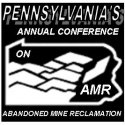December 2011 – Secretary of the Interior, Ken Salazar, and Office of Surface Mining (OSM) Reclamation and Enforcement Director, Joe Pizarchik, announced that nearly half a billion dollars in grants will be allotted to states and tribes working to eliminate health and safety hazards caused by past coal mining. This year’s funding – a $90 million increase over last year – will generate more than $1 billion in economic activity and support thousands of jobs across the country.
Funding for Abandoned Mine Land (AML) grants comes from coal receipts and is distributed through a Congress-mandated formula under the Surface Mining Control and Reclamation Act (SMCRA). Fiscal year 2012 grants will total more than $485 million, the highest amount ever awarded.
“When our nation enacted mining reform in 1977, we made a simple and bold promise that the revenues from coal extraction today should help clean up the legacy of coal mining many years ago,” said Secretary Salazar. “These grants help fulfill that promise, while putting men and women to work across the country on restoration projects that will bring lands back to life, clean up rivers, and leave a better legacy for our children and grandchildren.”
A recently issued Interior report estimated that the $369 million in AML grants made available for fiscal year 2010 delivered an economic impact of $1.1 billion dollars and was directly responsible for more than 8,600 jobs. With an increase of $90 million over fiscal year 2011 funding levels, the economic impact of the $485 million in grants announced today is expected to exceed that of last year’s funding.
“OSM AML grants announced today will have a significant impact on the health, safety, and economic growth of communities across the country,” said OSM Director, Joe Pizarchik. “With this and previous funding, our state and tribal AML partners will continue to produce a cleaner environment, well-paying jobs, and stronger local economies.”
Among the leading state recipients of 2012 AML grants are Wyoming ($150 million); Pennsylvania ($67.2 million); West Virginia ($66.5 million); Kentucky ($47 million); and Illinois ($24 million). Indian tribal governments receiving the grants include the Navajo Nation ($7.2 million); Crow Tribe ($2.2. million); and Hopi Tribe ($1.4 million).
The fiscal year 2012 AML funding available to eligible coal-producing states and tribes is as follows:
Alabama $9,439,875 New Mexico $5,538,041
Alaska $3,000,000 North Dakota $3,921,596
Arkansas $3,000,000 Ohio $16,485,743
Colorado $8,655,603 Oklahoma $3,000,000
Illinois $24,080,075 Pennsylvania $67,152,3678
Indiana $16,141,131 Tennessee $3,000,000
Iowa $3,000,000 Texas $5,413,781
Kansas $3,000,000 Utah $4,939,010
Kentucky $46,998,225 Virginia $11,330,795
Louisiana $426,215 West Virginia $66,495,521
Maryland $3,000,000 Wyoming $150,018,677
Mississippi $257,477 Crow Tribe $2,164,911
Missouri $3,000,000 Hopi Tribe $1,435,253
Montana $13,402,468 Navajo Nation $7,216,702
OSM provides grants to 28 coal-producing states and tribes based on their past and present coal production. The Bureau will make these awards throughout the current fiscal year, which ends on September 30, 2012. The $485 million available in fiscal year 2012 caps a four-year phase-in of increased funding mandated by Congress when it amended SMCRA in 2006. Since 1977, OSM has provided more than $7.2 billion to reclaim more than 295,000 acres of hazardous high-priority abandoned mine sites and for other purposes. For more information, visit www.doi.gov or www.osmre.gov.
Source: OFFICE OF SURFACE MINING RECLAMATION & ENFORCEMENT PITTSBURGH FIELD DIVISION NEWSLETTER December 2011











